With the advent of the iPhone 12 series, Apple has given life to a large array of accessories that, thanks to the magnet on the back, literally attach themselves to the rear body of the smartphone. These also include portable batteries. We tested Anker’s, and here’s what we think.
First of all, a clarification is necessary. Anker’s battery isn’t exactly MagSafe. Or rather, it has the magnet and it sticks to the one present on the iPhone 12, but it does not take advantage of the proprietary technology that, instead, is present in Apple’s MagSafe battery. So let’s say that it imitates its main functionality, namely that of being magnetic, and being able to be attached to your iPhone 12.
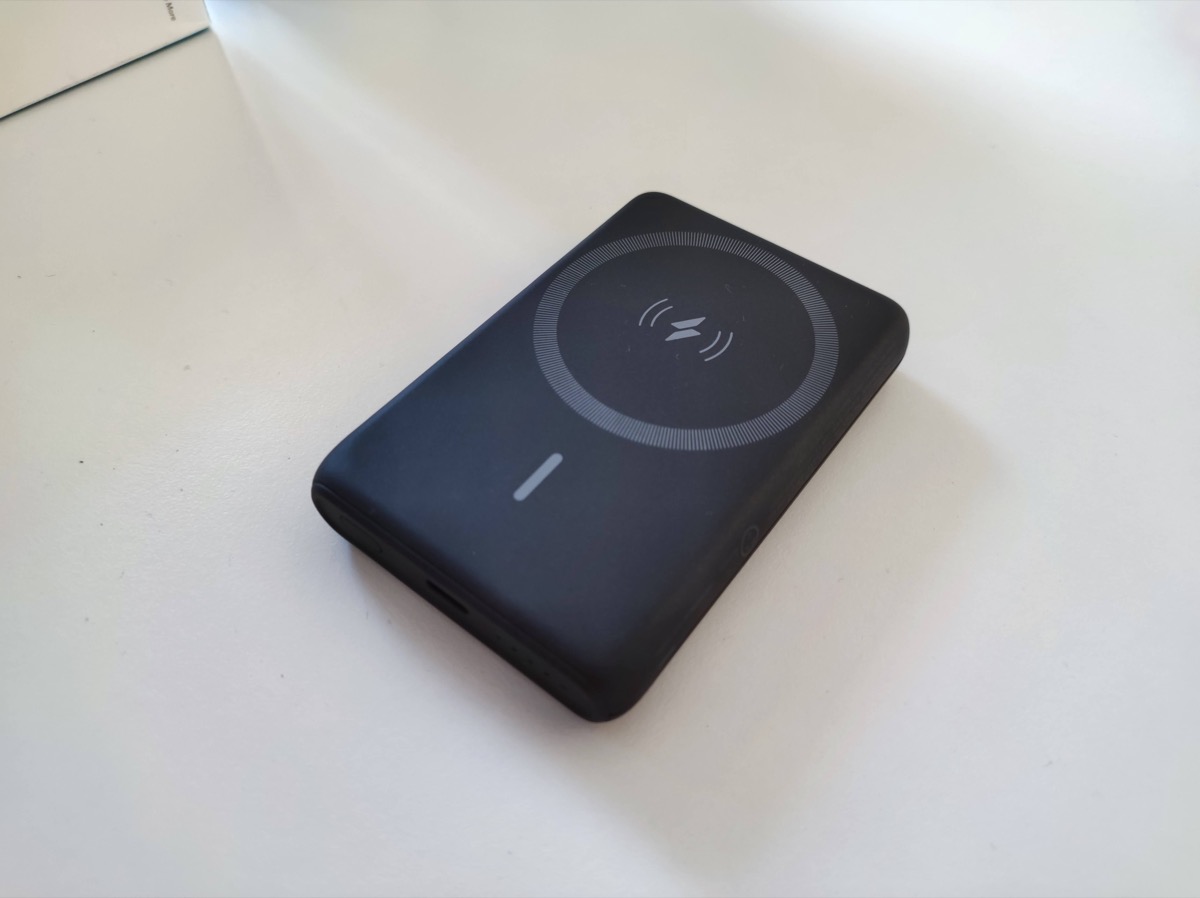
That said, the battery under test enjoys a nominal power of 5000 mAh, which as we will see later, however, turns out to be really much lower. The dimensions and design are those of a rather classic external power bank, so much so that the battery can be used just like a common external battery, able to recharge other smartphones, Android or iPhone, as well as tablets, with the cable. if we advise against use with the latter given the definitely greater battery capacities.
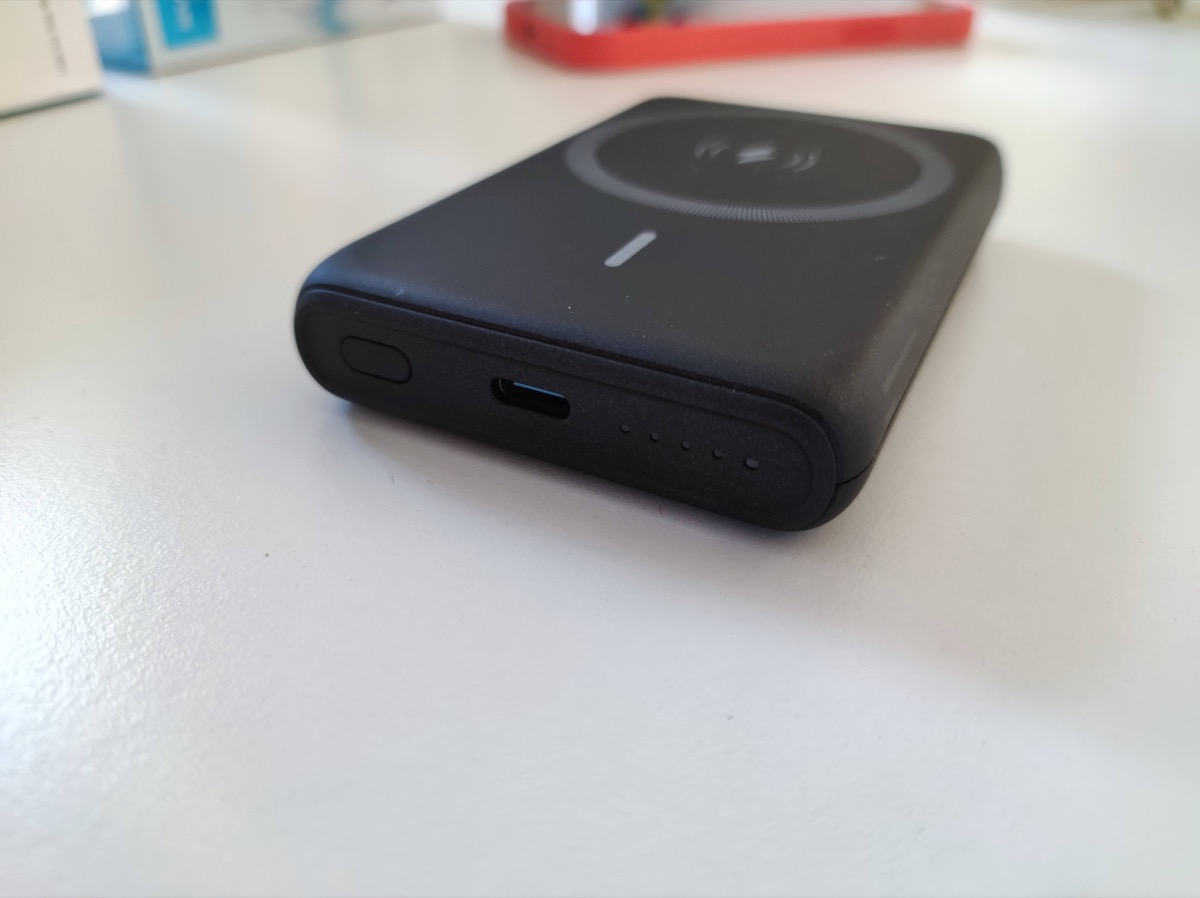
On the lower part, in addition to the USB-C port, which is used for recharging, and to is recharged, there are also four white LEDs that serve the user to understand the residual charge status. A blue LED, on the other hand, indicates that the battery is on, and in operation. Finally, the small button on the lower right is used to turn it on. It should be noted, therefore, that by attaching it to the back of the iPhone, the battery will not work by itself, but must always be turned on and off manually.
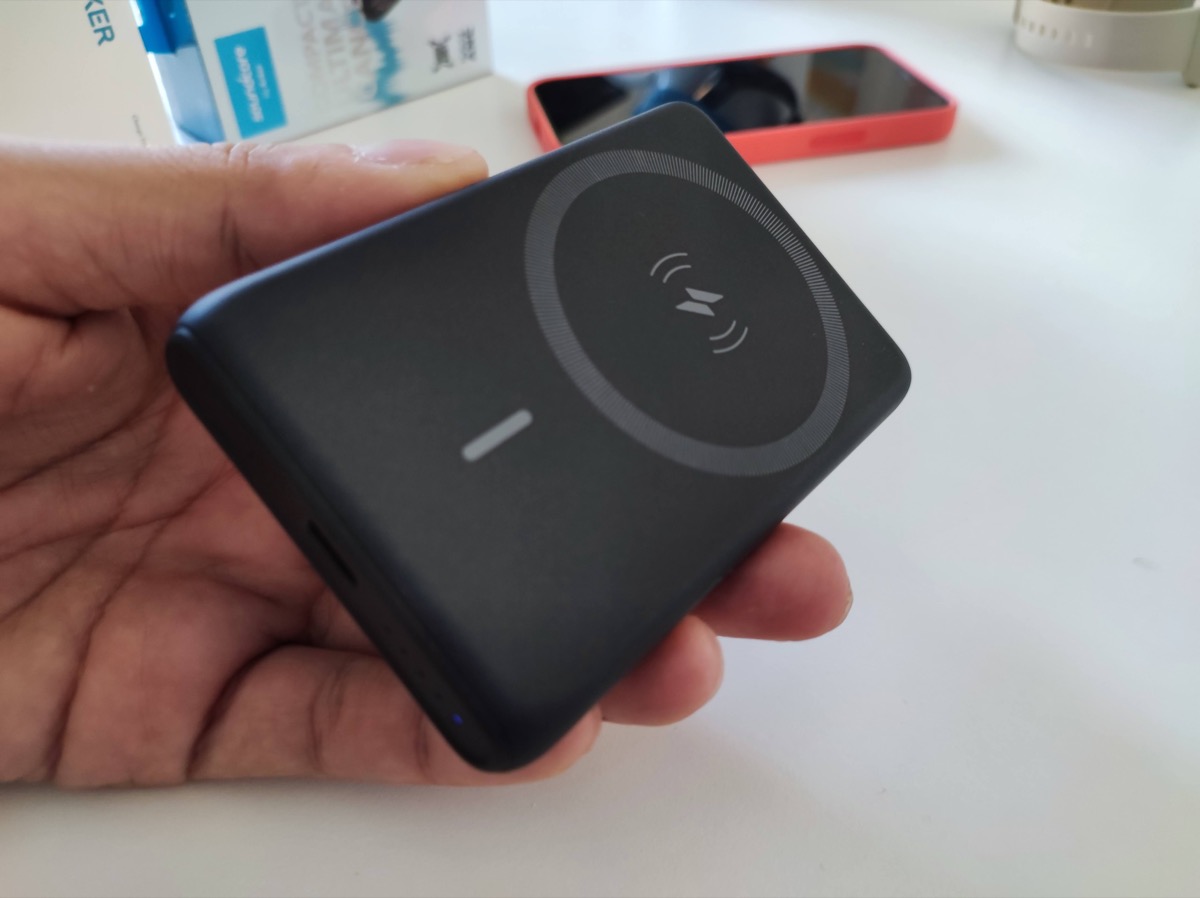
On an aesthetic level, it is a well-made battery, compact in size, and fits well on the back of an iPhone 12. In particular, we tested it with the iPhone 12 Mini. In practice, the Anker battery extends in width for almost the entire smartphone, which still can be held comfortably, just to be used while charging. This is, in fact, the real reason for choosing a MagSafe battery, because it is practically proposed as pertinence of the smartphone as if it were a cover with battery included.
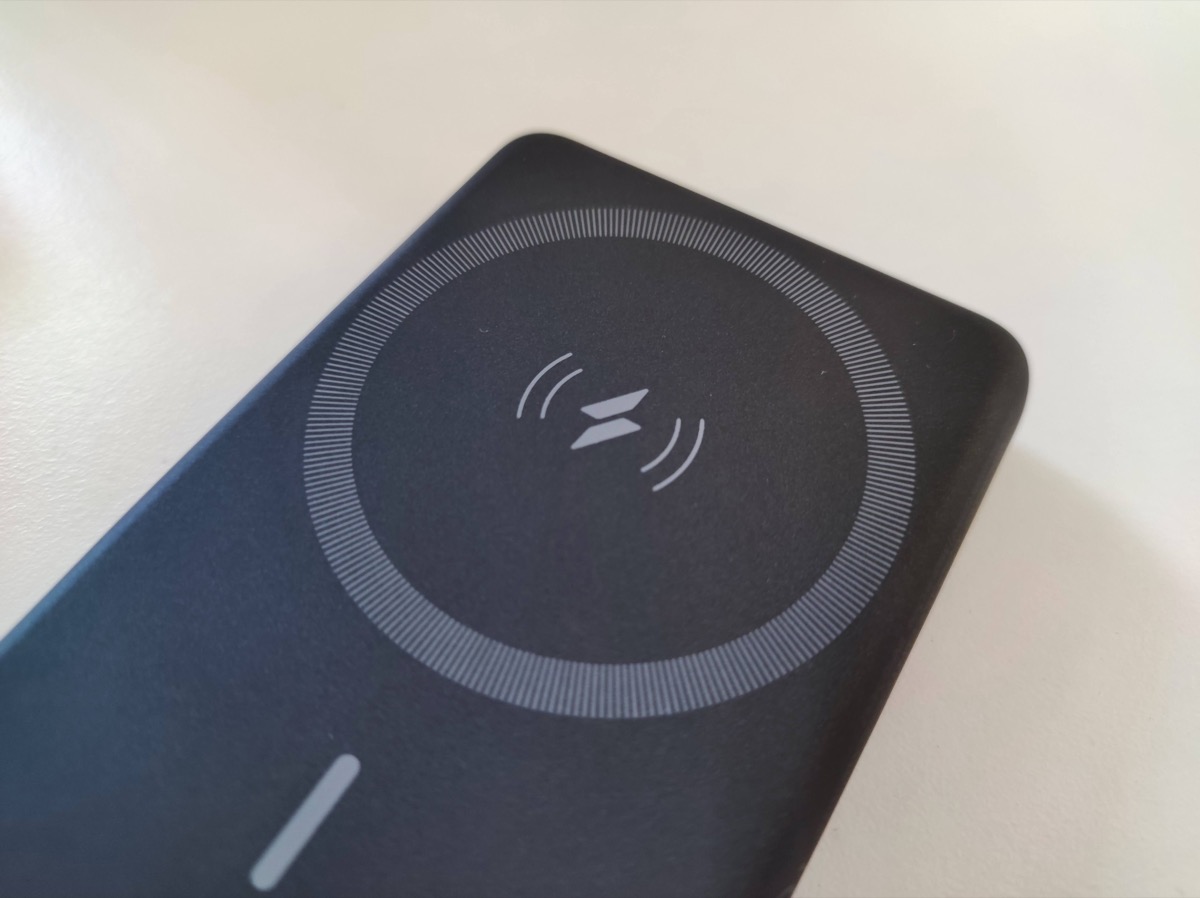
Magnet strength
One of the first elements that we considered useful to evaluate is, precisely, the strength of the magnet. Considering that whoever buys this battery will do so mainly, if not exclusively, for use with an iPhone 12, it is important to understand if the battery remains in place.
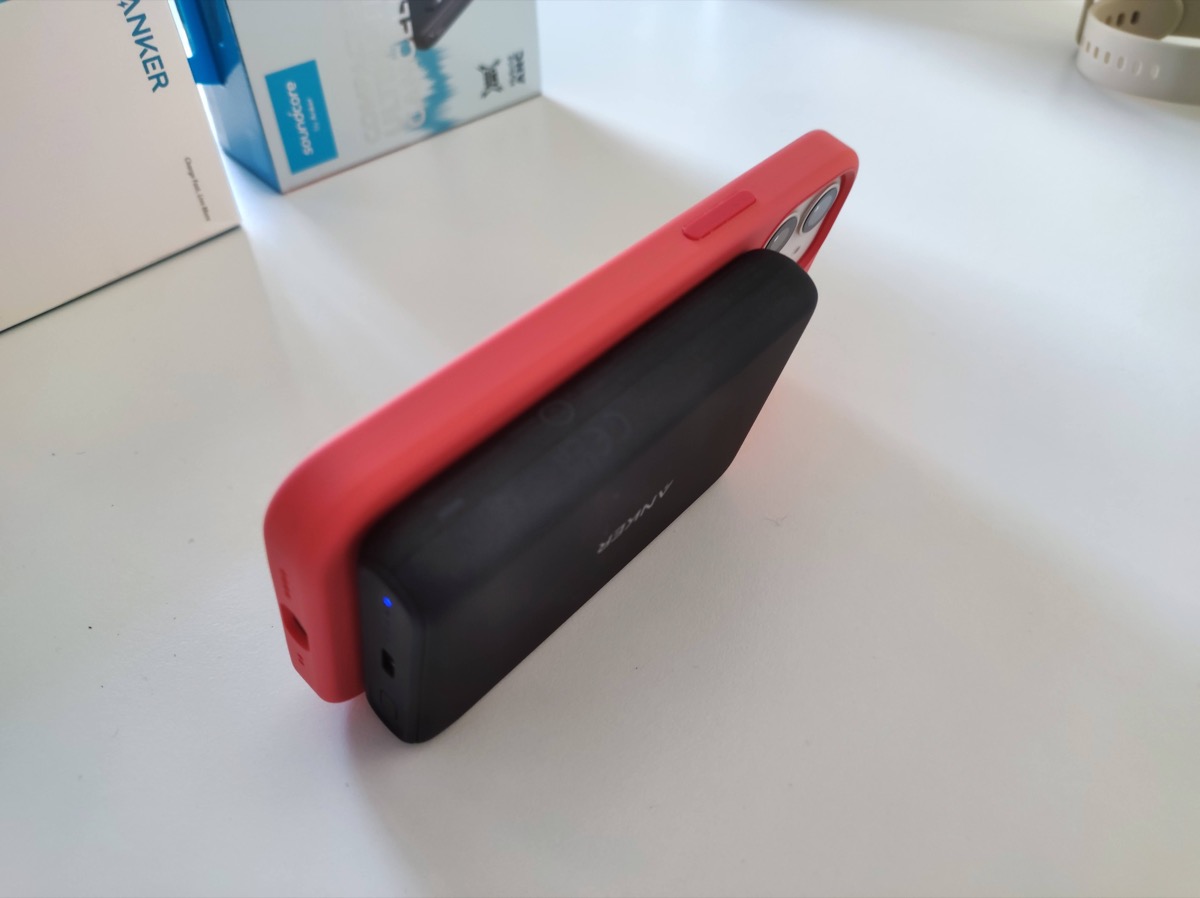
We initially tested it with the naked and raw iPhone, i.e. without any cover. This is a scenario that, however, is unlikely to occur. We have never seen, if not rarely, someone using an iPhone without a cover. The fear of ruining it is such that, almost always, you opt for a protective back cover. However, without the cover, the battery has a very good grip, so much so that you can hold the iPhone by holding it only by the battery. Conversely, holding only the iPhone, the battery remains firm and does not tend to fall. The grip is strong, but just twist the battery, rather than pull it, to make it slide easily and, consequently, detach it.
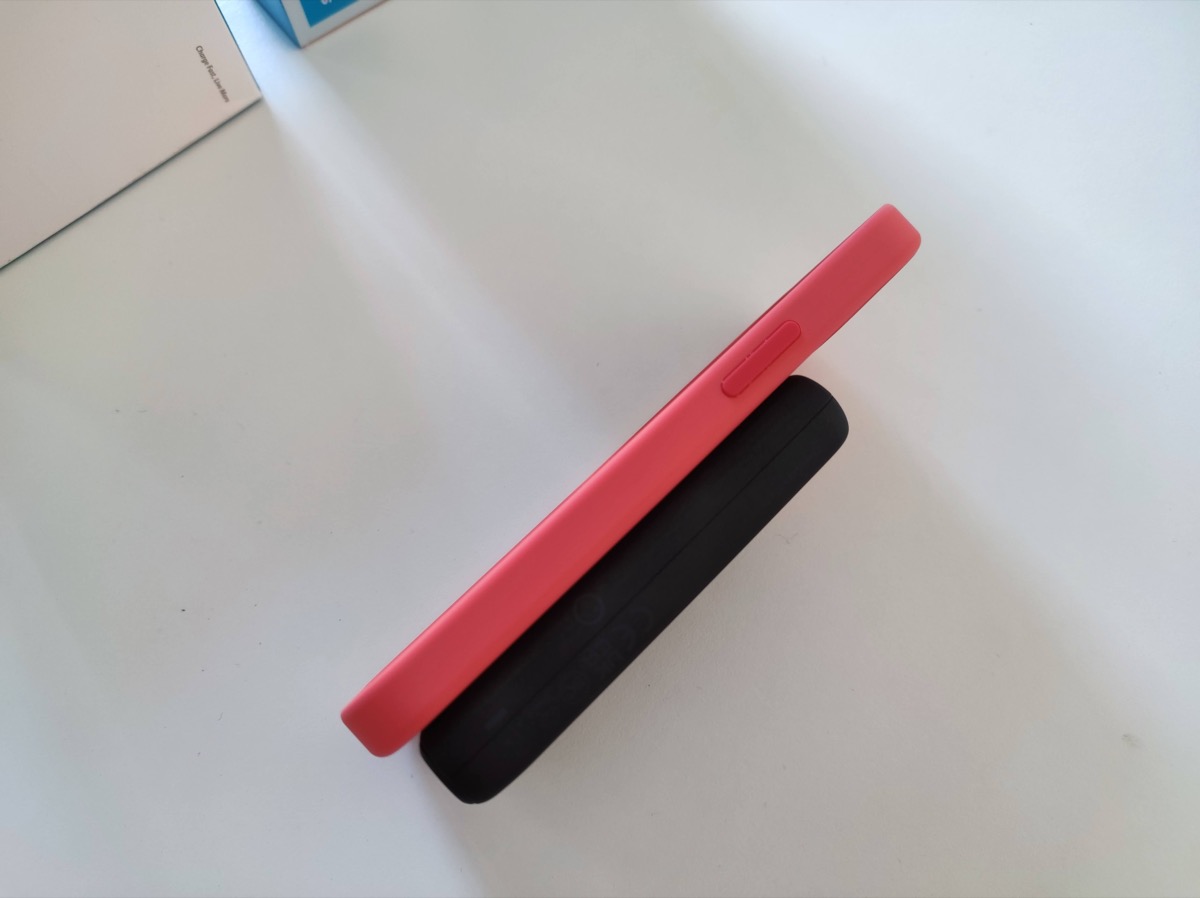
We then tried to use the battery with several covers without a magnet. The first, a silicone cover very similar to the official Apple ones. In this case, the battery was struggling to stay in place, and using it in this way is totally not recommended. If you have a thick silicone cover without a magnet, you can use the battery as a wireless charging base, then placed it on a table, but don’t think you can pick it up and use it normally.
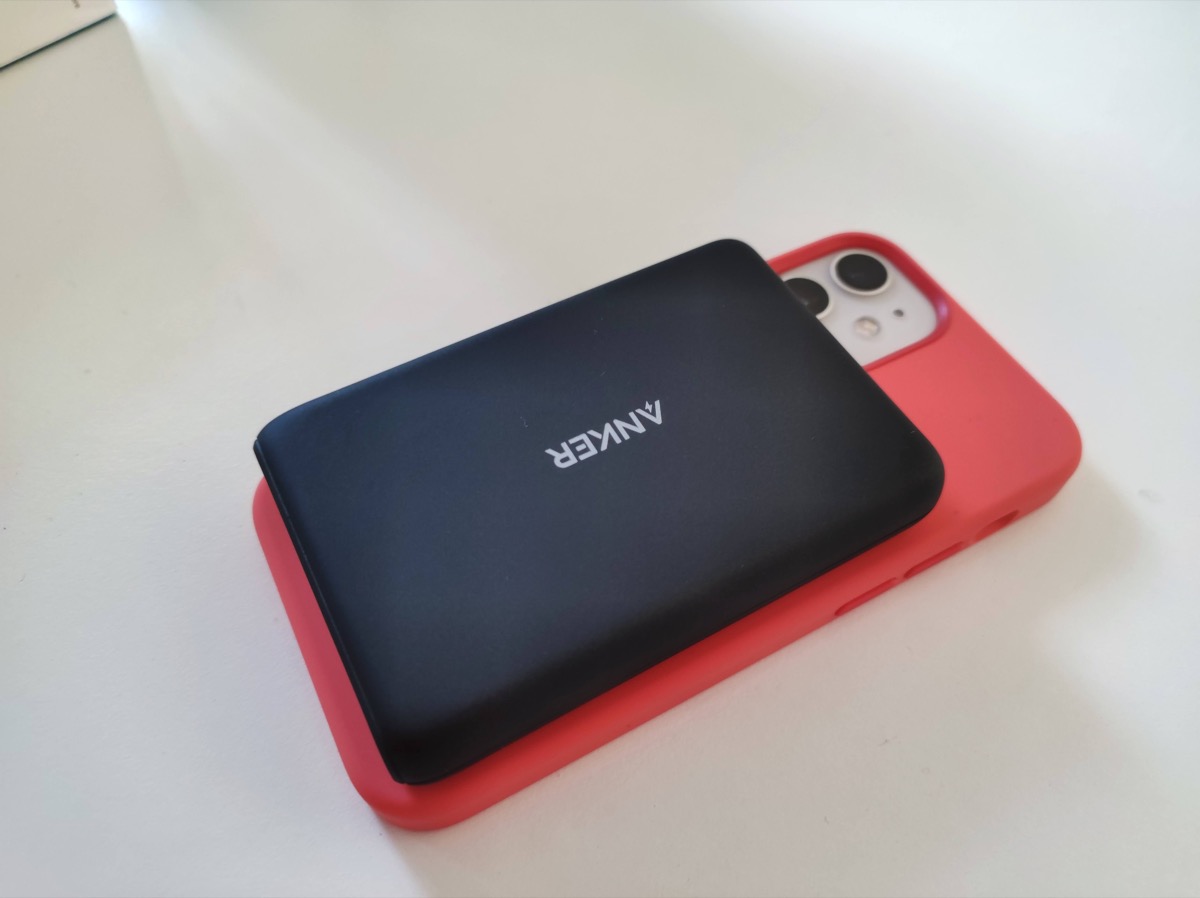
Similar speech when we tried a transparent ultra-thin cover. In this case, the strength of the magnet has slightly improved the grip, but not so much as to be an ideal match. Even in this case, although the battery still manages to recharge the iPhone, the strength of the magnet is not at all optimal.
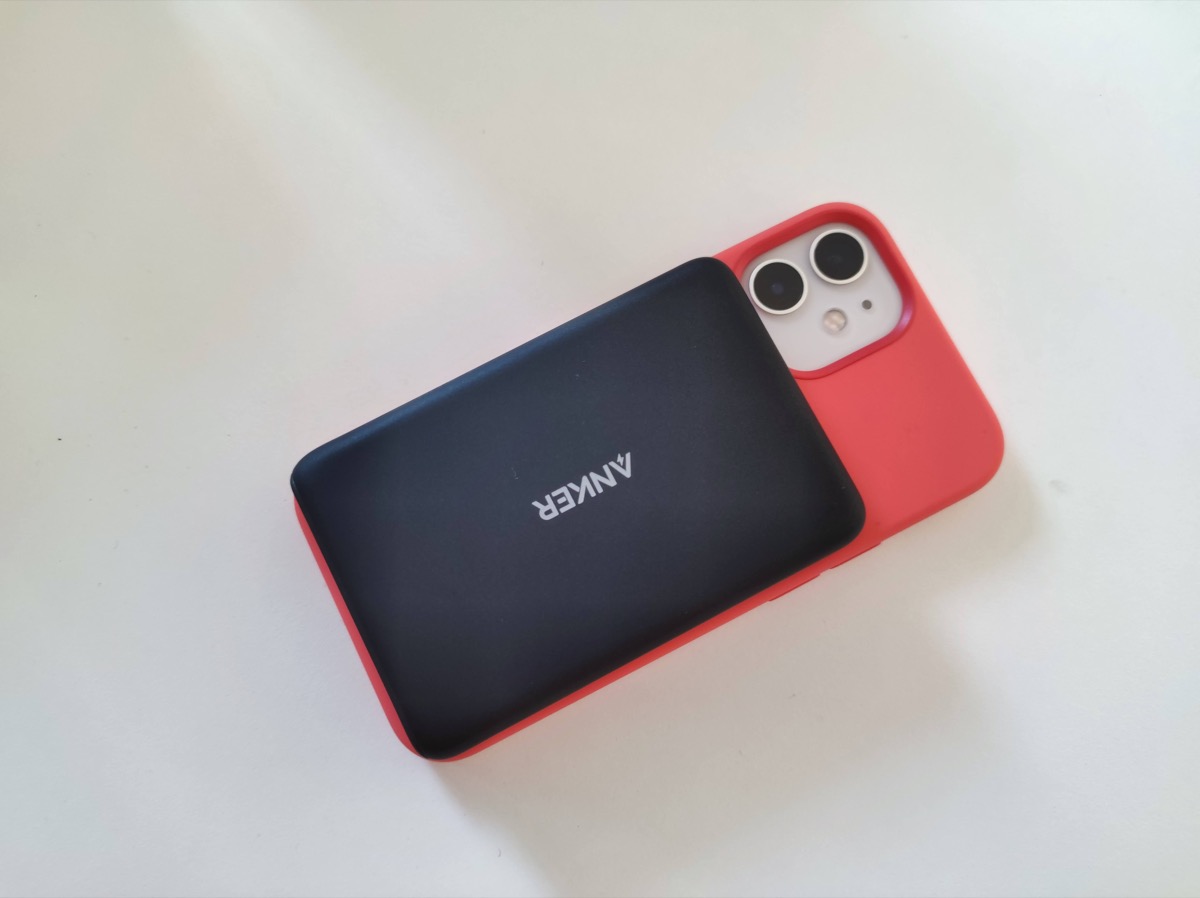
Finally, we tried the Anker battery with an original Apple silicone cover, equipped with Magsafe, that is the magnet. This is, without a doubt, the preferred use. In this case, the attractive force of the magnet is maximum, even better than when we tried without the cover. The battery remains absolutely secure to the iPhone, and hardly ever falls out accidentally while using it. In short, if you buy this Anker battery know that it will be better to combine a cover with a magnet, otherwise, you will have to use it without a cover.
Charging speed
Here, probably, come the pain points. Anker’s magnetic battery allows you to recharge your iPhone at 5W. This is a speed absolutely far from the 15 promised by Apple’s Magsafe battery (12W for iPhone 12 mini). You can’t blame this limitation too much, because it’s not Anker’s choice, but a limit imposed on all non-Magsafe batteries. Probably, it is also good for the battery to stop at a 5W charge because this reduces its overheating during charging.
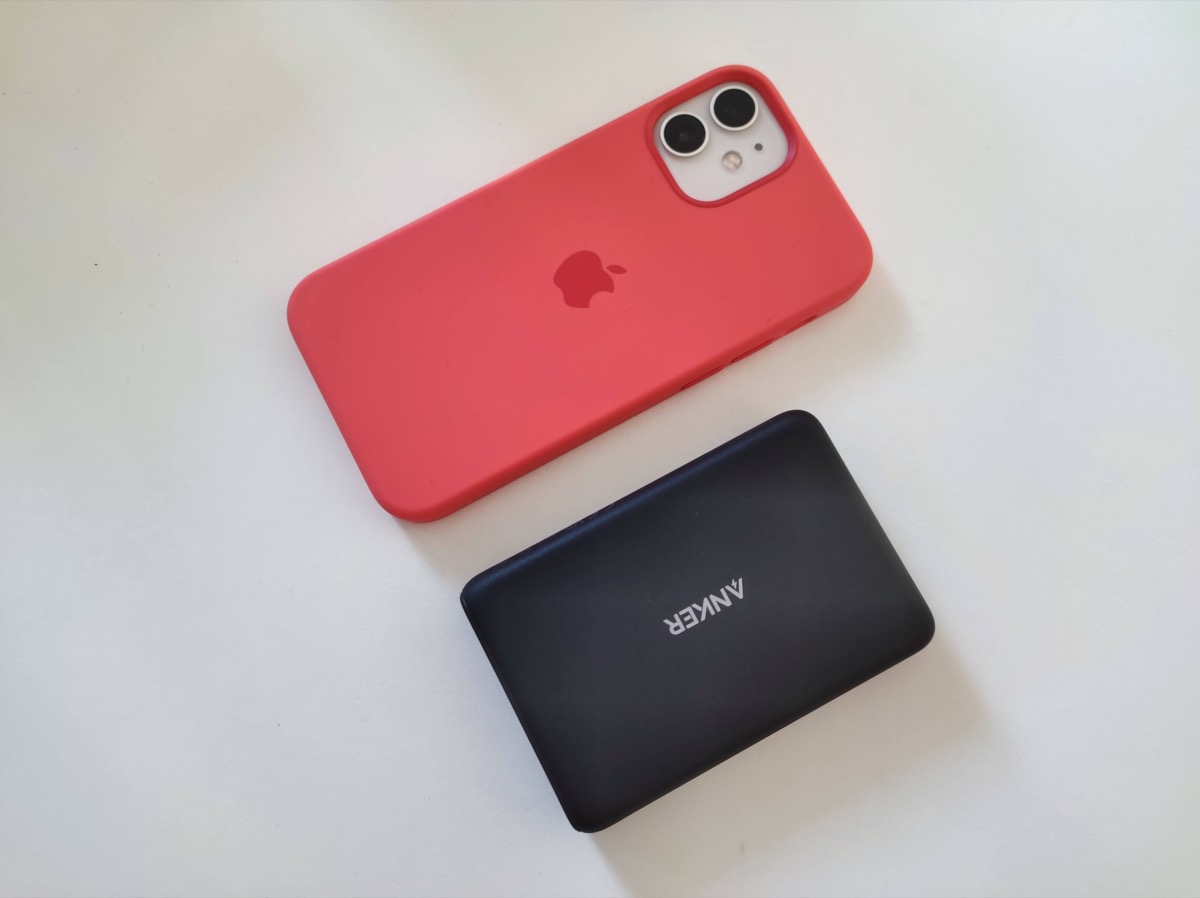
It must be said, then, that recharging is rather slow. When recharging our iPhone 12 mini, here are the recorded times:
It must be said, then, that recharging is rather slow. When recharging our iPhone 12 mini, here are the times recorded: from 18 to 28% in just 10 minutes; from here began a particularly evident slowdown. And in fact, adding another 10% and reaching 38% charge took another 15 minutes. We got a 50% charge after just under an hour of charging, while after 1 hour and 40 we were at 70%.
Furthermore, even the battery recharge is not the fastest: it takes more than two hours to recharge it completely.
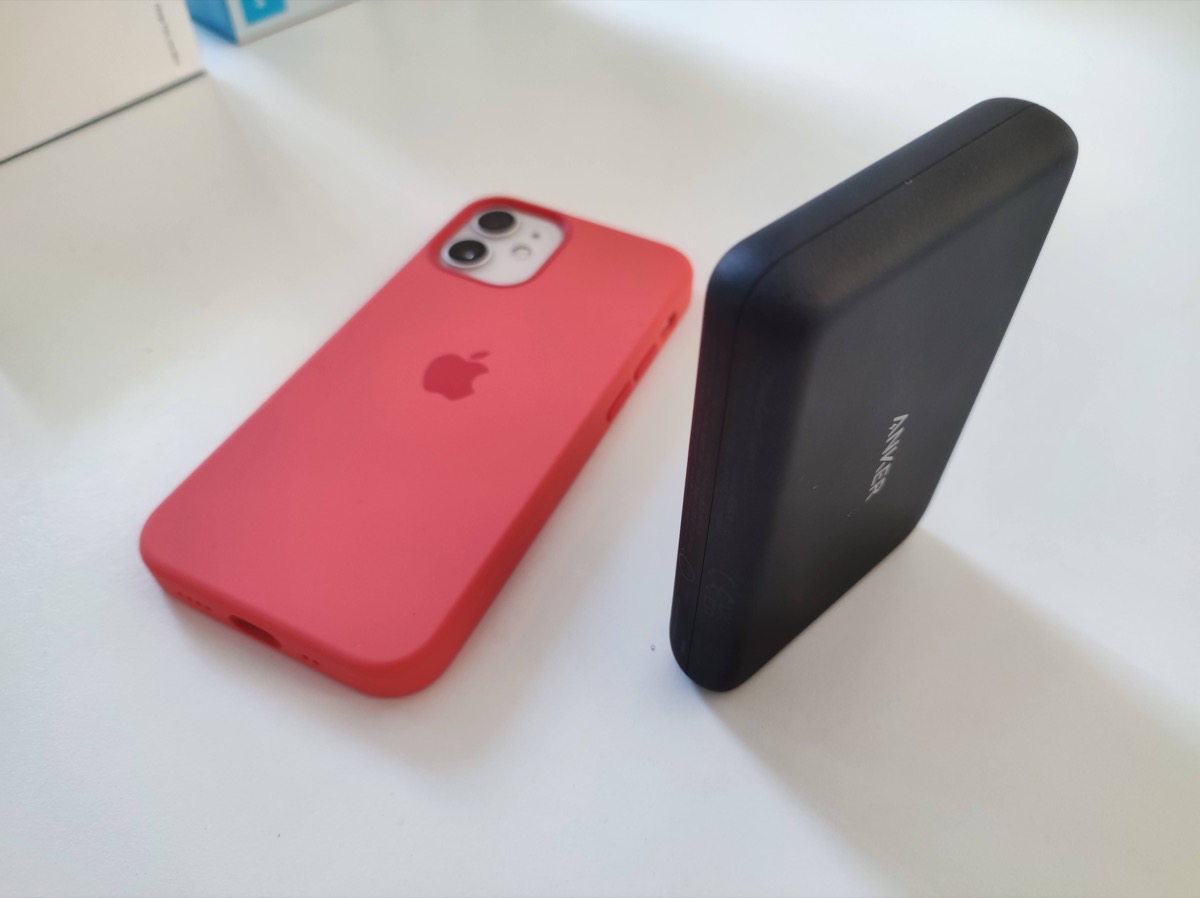
Attention, however, does not mean that the battery is not extremely comfortable and functional. And in fact, it will be used a lot in everyday life. Just put the iPhone in your bag or backpack, attach it to the battery and that’s it. Even if the speed is not at its maximum, it will still be possible to use the iPhone almost as if nothing had happened. As a result, the extra charging time is compensated by the ease of use of the smartphone even when it is charging.
Another criticism is the battery capacity. The 5000 mAh would suggest the possibility of recharging the devices at least twice. This is not the case: with the iPhone 12 mini you can reach a full charge, while with the iPhone 12 and 12 Pro, not even this.
Ultimately, it is an emergency battery, which offers the possibility to extend the life of the iPhone without giving you the hindrance of cables and wall plugs necessary. Furthermore, we have noticed that overheating is present but not excessive. To consider that the use in this hot climate certainly does not help to contain overheating; even in this case, however, the use of a silicone cover (the one with Magsafe) helps a lot to be able to use the terminal without it being too hot.
Conclusions
It’s not the fastest battery on the market, yet it’s really comfortable. The cost is absolutely proportionate to what it offers, and the advice is to buy it only if you have an iPhone 12. It is with this that you should use it more, because the real advantage of this Anker battery is the magnet and the possibility of using the iPhone while charging as you normally would, with only a small bump on the back.
PRO
- Design and aesthetics
- Absolutely convenient to use with iPhone 12
- Magnet a lot forte (with MagSafe cover)
- Fair price
AGAINST
- Slow to recharge
- Slow to charge
- Only one additional charge to iPhone 12 mini (less than one charge to iPhone 12 and 12 Pro)





